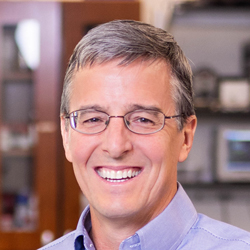
Guillermo Ameer
QSI RENU Director
Daniel Hale Williams Professor of Biomedical Engineering
Professor of Surgery
Director, Regenerative Engineering Training Program
Director, Center for Advanced Regenerative Engineering

Skin is the largest organ in the body and it is a barrier that protects you from germs and other dangers in the environment. But when your skin gets injured, this barrier is broken, making it easier for infections and other health risks to set in. Sometimes, wounds do not heal properly because of underlying diseases or medical conditions such as diabetes. We are working on new ways to help the skin heal faster and better, including:

QSI RENU Director
Daniel Hale Williams Professor of Biomedical Engineering
Professor of Surgery
Director, Regenerative Engineering Training Program
Director, Center for Advanced Regenerative Engineering

Professor
Director of Research
Division of Plastic Surgery, Department of Surgery
Associate Professor, Department of Dermatology

Jacob & Rosaline Cohn Professor
Department of Chemistry
Materials Science and Engineering
Biomedical Engineering and Pharmacology



Chair, Department of Dermatology
Director, Skin Biology and Disease Resource-Based Center
Walter J. Hamlin Professor of Dermatology
Professor, Dermatology, Pediatrics (Dermatology)

Louis Simpson and Kimberly Querrey Professor of Materials Science and Engineering
Biomedical Engineering and Neurological Surgery
Director, Querrey Simpson Institute for Bioelectronics
Electrical and Computer Engineering by courtesy
Mechanical Engineering by courtesy
Chemistry and Dermatology by courtesy